I wouldn’t know that Yemen would be in war as I was planning my route a couple of years ago. Normally my plan was to cross Yemen and Djibouti and arrive in Ethiopia after Oman. In 2015 a civil war broke up in Yemen so I had to change my plans. The last country I visited in Arabian Peninsula was therefore Oman. Now, there are two ways to leave the country. One is to take a ferry and go to Iran which would mean that I’ll continue my world travel through Asia or taking a flight to Ethiopia. Well, of course I’ll continue to my journey from Africa.

Ethiopian Airlines has a direct flight between Muscat and Addis Ababa. At the airport Omani men were sawing off their second or third wives all veiled. Then, during flight those going to the lavatory came back with pants and strapless shirts. Not to mention about their make-up. Alcohol was poured like water. My time as a university student came in my mind. There was a beautiful girl studying at the faculty of law. She was always dressed well. One day I saw her in a plane flying back to Turkey. She was totally covered, I could hardly recognize her. She was dressing different in Turkey and Cyprus. Dude, time passes so fast. If someone had said that I would travel on bike around the World I would probably say “Are you kidding me?”
While the plane was landing in Ethiopia I was looking through the window, the ramp area caught my attention. “Dude, they are really taking a big risk” There are flights to every country in Africa departing from Ethiopia also called capital of Africa. Therefore, Ethiopian Airlines very self-assured in Africa. But aircraft maintenance area was like an ordinary auto body shop. A strange image. I stayed for 15 days in Addis Ababa in Ethiopia.
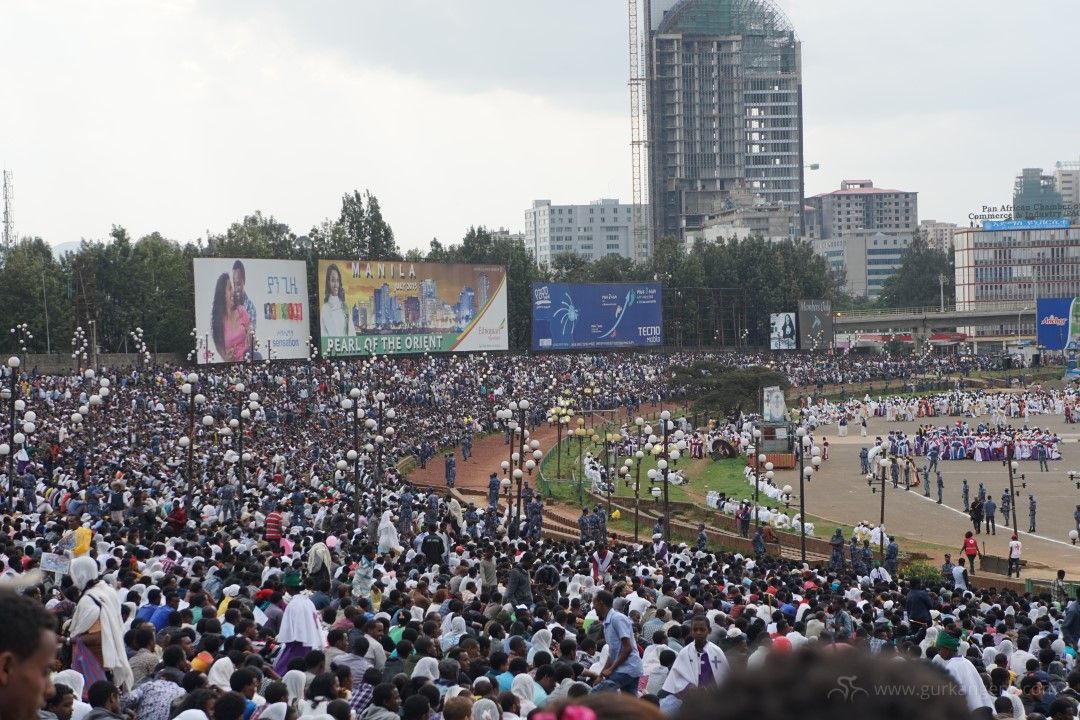
On my bike tour from Turkey to Japan I was noting that slant-eyed people were looking at me which I had mentioned in my road memories. When I looked at those people in East Asia they were turning their eyes away but not in Ethiopia. They keep staring at me and examine thoroughly from top to bottom. They make me clear that I’m different. After a while I felt myself comfortable but still peoples look reminded me that I’m different. After a time I also commented when I saw a white man “Aaaa dude, white man” as if I saw a white man the first time in my life. I was laughing to myself.
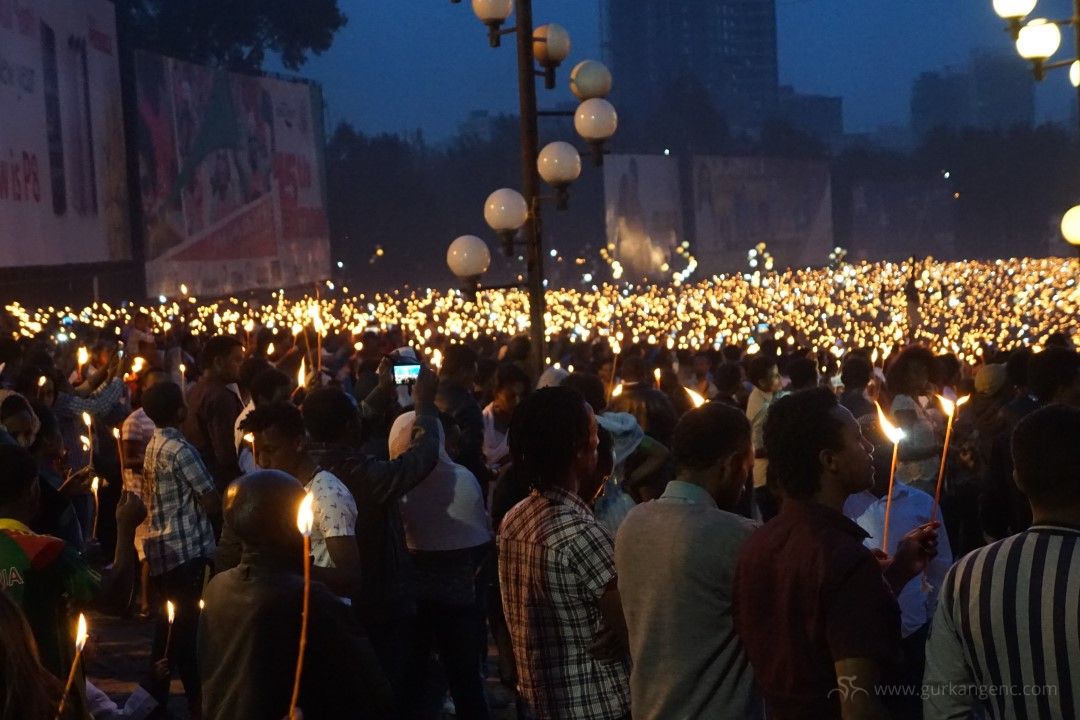
Addis Ababa is the second highest capital in the world at 2500 m altitude. When I went out early in the morning I saw everyone was on the street. Why? Everyone is jogging. The best long distance athletes are from Ethiopia or Kenya. Most of the people like running. You can see thousands of people performing sport at the city square. It’s good but I think they do not eat the right way. They mostly eat bananas and twice a meal called incira during day I guess. Incira is made of rare or uncooked meat put in sour tasting thin bread. Well, they eat raw meat. Dude, I said you get infected with worms and I was informed that medication was sold against worm infection in pharmacies. I tried this meal here and there but didn’t like at all.
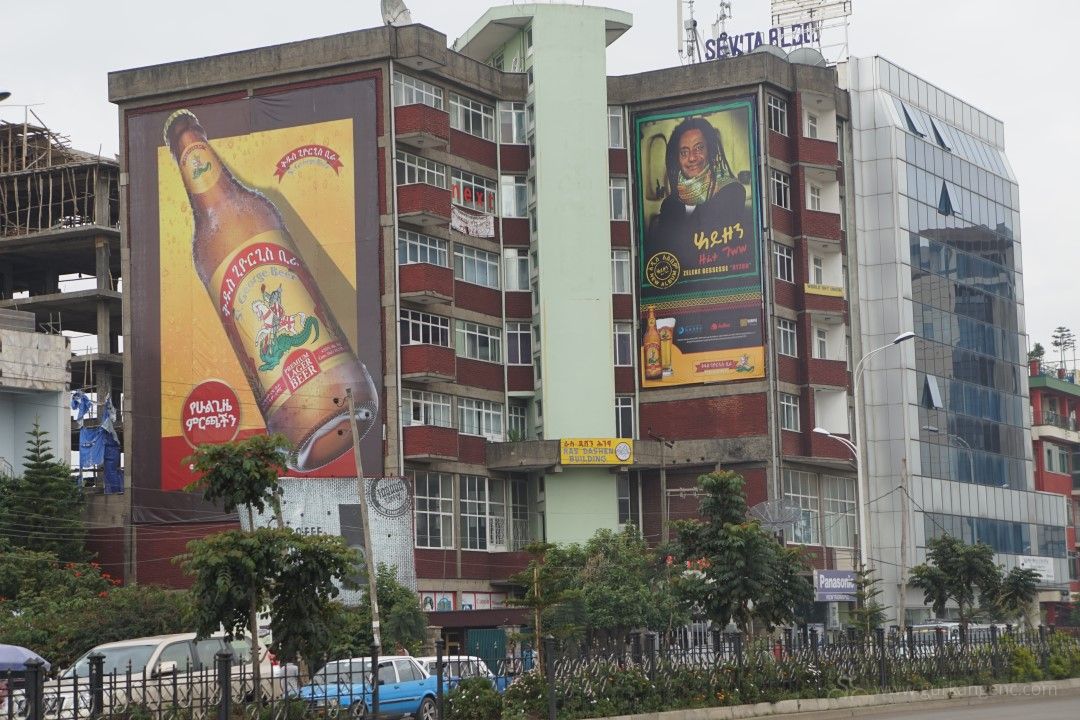
The city center resembles huge construction area. At the skirts of the city people are living in tin houses. The rents in city center start from 2500 USD. The citizens are either very rich or very poor. No middle class. The flats in the city center are mainly rented by foreigners.


Ahmet Abi whom I met in Medina had a contact in Addis Ababa, Serkan. Serkan contacted me before I arrived in the country and since he was out of the country for business directed me to Oguz. There are not much historical places to visit in Ethiopia. A couple of orthodox churches one of them built 700 years ago.
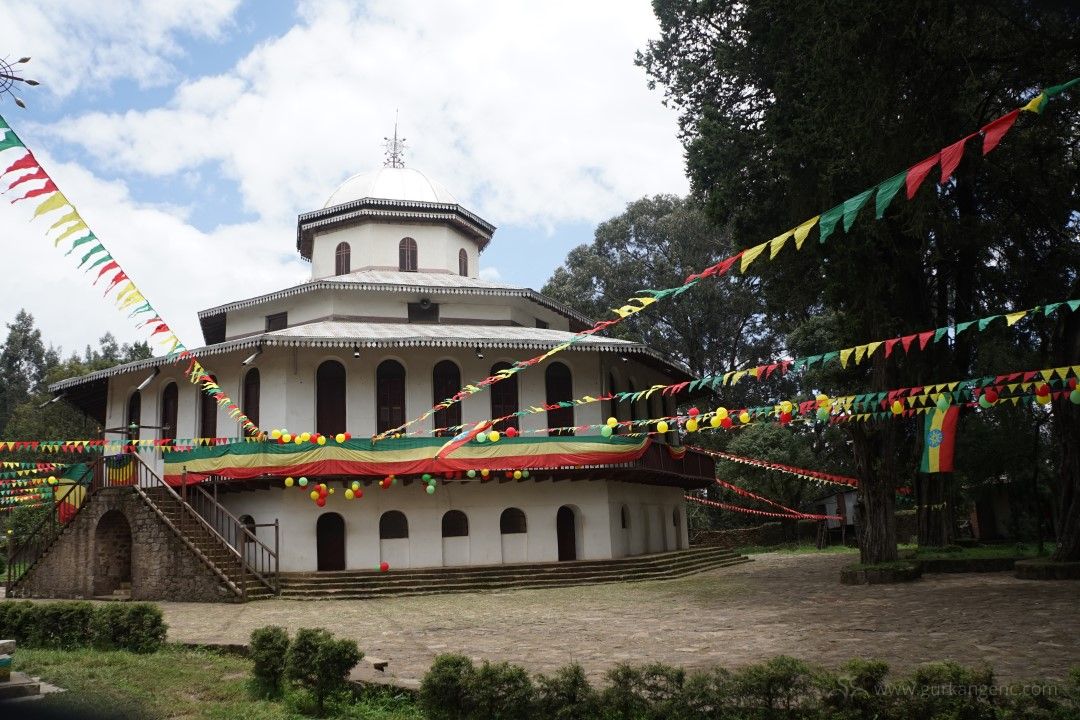
The Ethiopians see themselves superior to all the other African countries. The reason is that they were never colonized. First came the Portuguese, then Ottomans, British, Italian. None of the countries could dominate the country but only the coastal line. Well, then how could Christianity spread in this country? Actually Ethiopia has played an important role in spread of Christianity since 200 A.D. Ethiopia has its own church in Jerusalem.
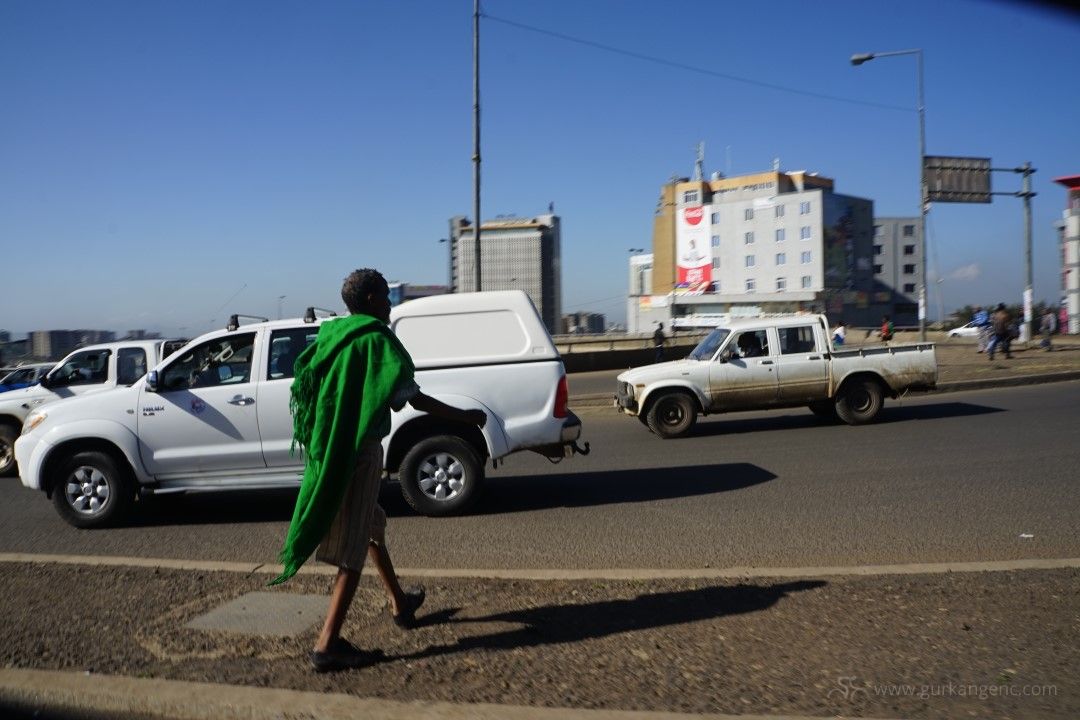
This region plays an important role in Ottoman’s history. Ottomans invaded the port towns in this region in 16th century and kept under control till the end of 19th century in order to take control of the Red Sea. Ottomans could dominate only the coastal line of Abyssinia former name of Ethiopia. Although Ottomans made attacks to take under control the inner land they failed due to the rough terrain. During one of these attacks Ottoman soldiers gave support to Imam Ahmed’s army who revolted against the king. But Portuguese supported the Orthodox government under the command of the famous explorer Vasco da Gama’s son Cristovao da Gama . I got surprised to see his name while reading a book about the history of this region. While Gama was commanding in the front he was killed during an attack of Ottoman soldiers. To this reason Portuguese send a huge army to Ethiopia. After a long battle Portuguese defeated Imam Ahmed and the Ottoman soldiers overtaking the control of the region once more. Ottomans then send more soldiers to overtake the control of the coastal line. This issue goes on like this. The strange point is that the commander of the Ottoman soldiers was a colonel receiving a medal of honor in American civil war. : ). I came to very interesting information about Ethiopia Turkey relationship upon research. Generally, instead of combating with foreigners they were involved in civil wars. There were incredible tribe battles and savageness among different tribes. Still there are conflicts among tribes in some regions. Although there is a considerable Muslim population outside Addis Ababa the governance of the country is Christians. While traveling to the south of the country I talked to a few people knowing English about their opinion of country governance. I realized that all were interested in the religious dimension of governance. They did not care how it is ruled good or bad. They just say Muslims should rule.
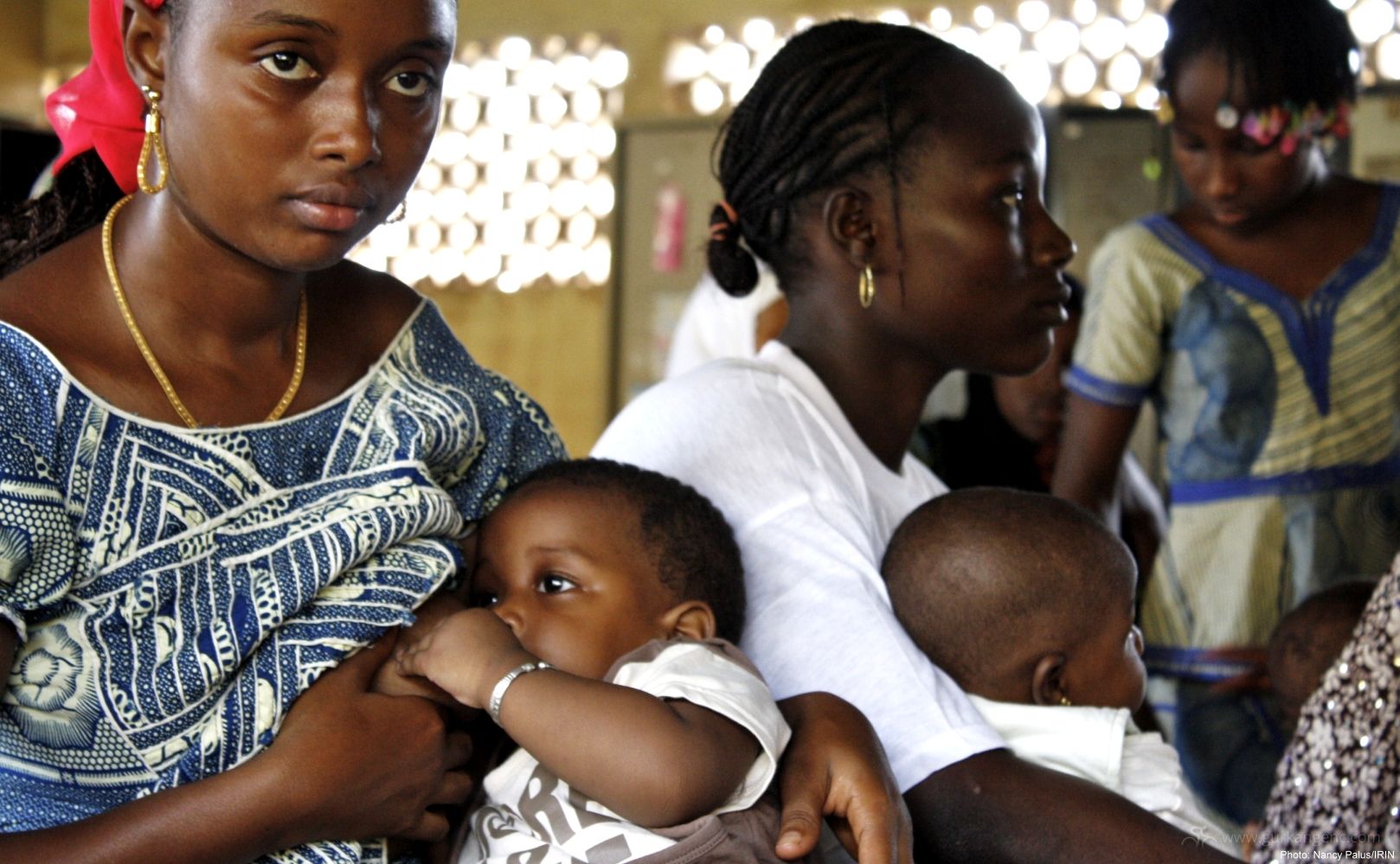
I also want to mention about a few situations which caught my attention and I’m not used to. For example, the toilet issue. I had already mentioned during my China travel that I saw a couple of Chinese who urinated here and there in the middle of street, although occasionally. But here is completely different, everyone can urinate everywhere. The man walking in front of you can stop suddenly and urinate turning to the right or a woman can just crouch down aside the sidewalk. I only saw people urinating but did not come up with people defecating. There is nowhere in the world such a comfort you can urinate any time anywhere you want. Nobody says anything. While on the road I can piss on my bike here and there. I don’t think I would have any difficulty in this issue.
The other issue is breast feeding. Every mother can breast feed her sibling anywhere she wants. Nobody would say: “Hey! Her breasts are out” I even didn’t see this ease in the European countries. I just have heard about some protests about this issue recently.
There are many Ethiopian children adopted by European and American families. Also some Turkish prominents had adopted children from this country. I had the opportunity to meet Ethiopian descent Americans. They told me coming back to their country they felt in peace. Leaving in Ethiopia as a citizen of a country with endless opportunities is a preference of some. Some really love their country some come for their own interests making use of the present situation of the country.
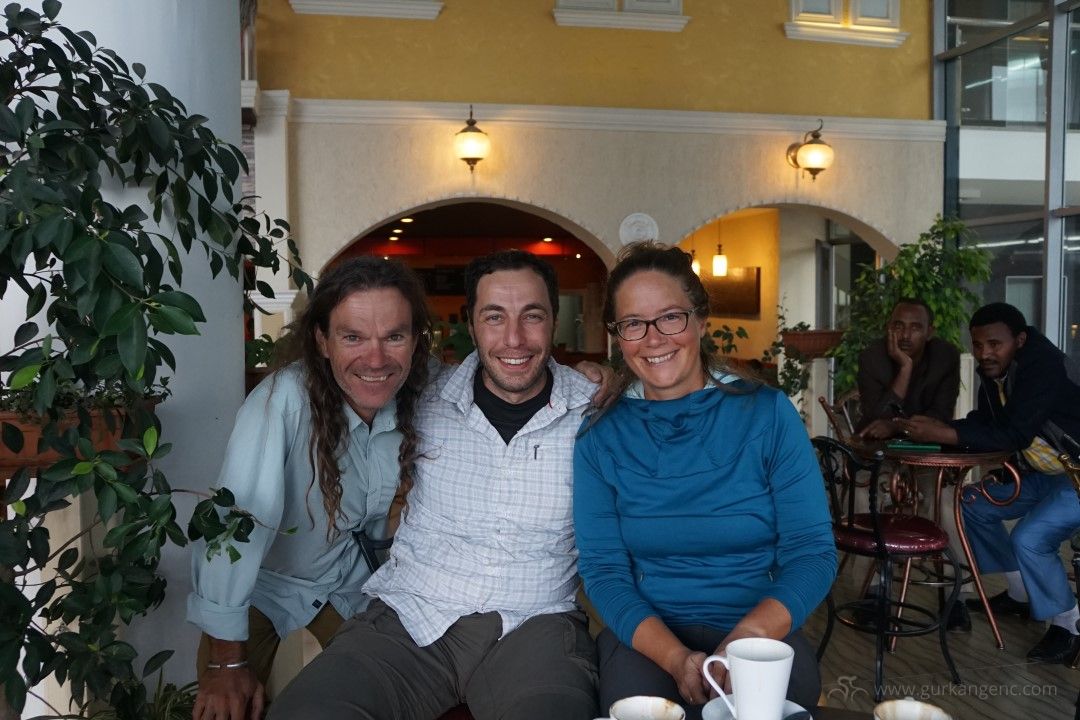
After a long gab I met three touring cyclists in this country, Janic and Pier from Canada and Peter from England. Pier and Janic have been traveling since 15 years. Peter is a legend. I had read his articles before I set off for my Japan tour. It was a pleasure to meet these legendary explorers on the road and listen to them.
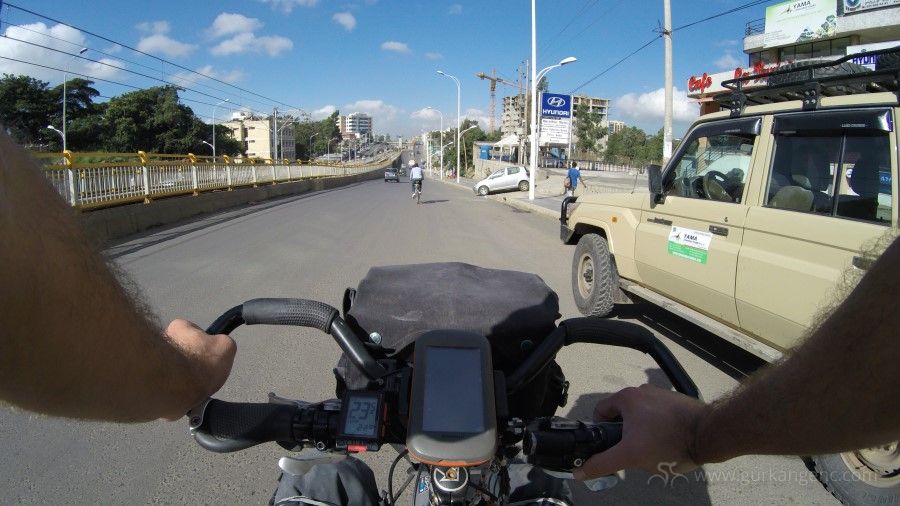
It is not easy to exit Addis Ababa on bike. There is heavy traffic with numerous careless drivers. Almost all the main roads were paved but the side roads were just disaster. My travel in Ethiopia was mainly on dirt roads.
It is easy to find a cheap hotel in every town. After the Arab hospitality I must say that it is almost impossible to talk about Ethiopian hospitality. Once a villager had invited me to his house and then wanted me to pay for putting up my tent in his garden. He got angry since I didn’t pay for it.
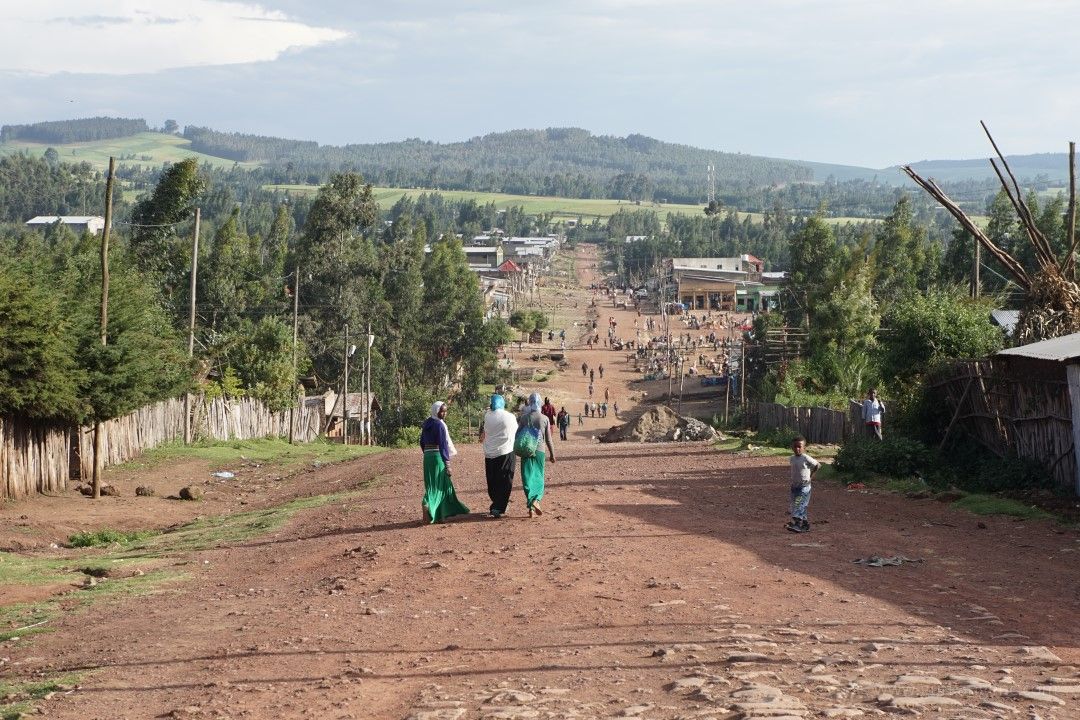
During my travel in the country the region where I didn’t see any settlements or people was at Kenya border. That again was due I was traveling in wilderness. It is a country where you come up to a village almost every 30 km. Southeastern region is highland with up and downs. It is endless green and it is possible to see the areas through which the rivers are running. Ethiopia, Kenya, Tanzania, Uganda and Ruanda do not fit into the starving African country profiles I have known from the documentaries. Especially, Ethiopia is covered with forests aside southeastern part. I also look at the photos shared by Janic, Pier and Peter. We all are cycling through an amazing landscape in Ethiopia spread to four corners.
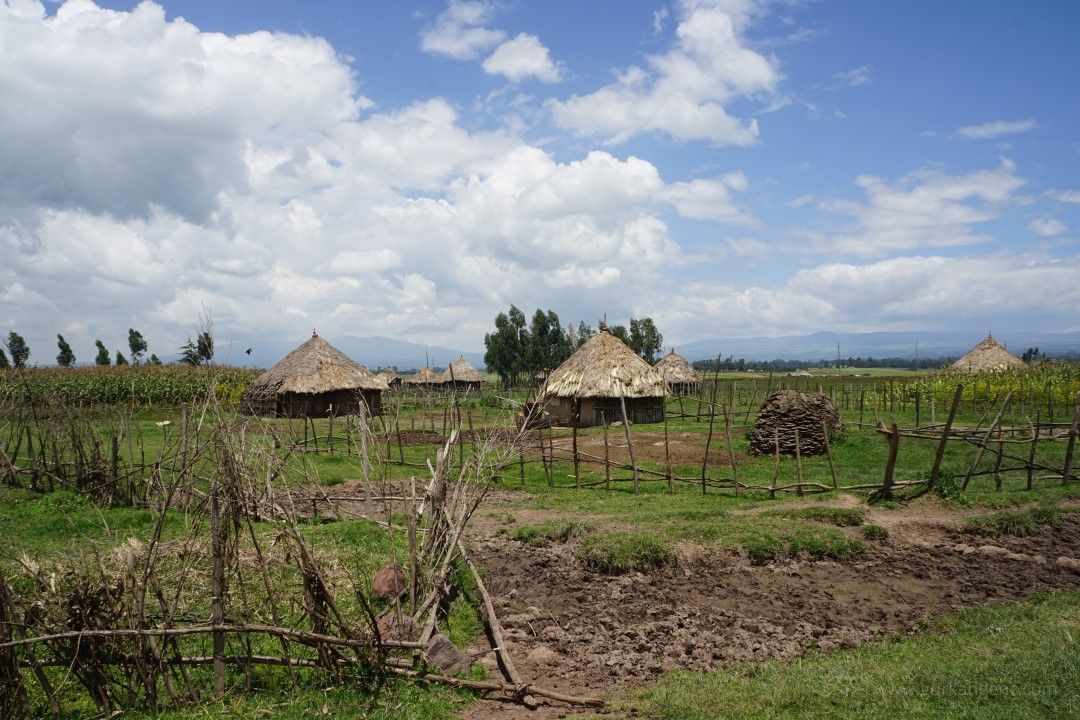
As we share the same opinion that we are cycling through an amazing landscape we also share the same opinion on the issue of kids throwing stones on foreigners. For example when I stop they come to me running and want money from me. If I don’t give they start to throw stones as soon as I’m few meters away on my saddle. Or they just throw stones as soon as they recognize me. If there are one or two kids this doesn’t bother much but with the increasing number of kids it becomes annoying. I have never beaten a kid yet but I know Janic, Pier and Peter have beaten a couple of kids. Six or seven months ago kids wounded a British cyclist so badly that he needed medical care.
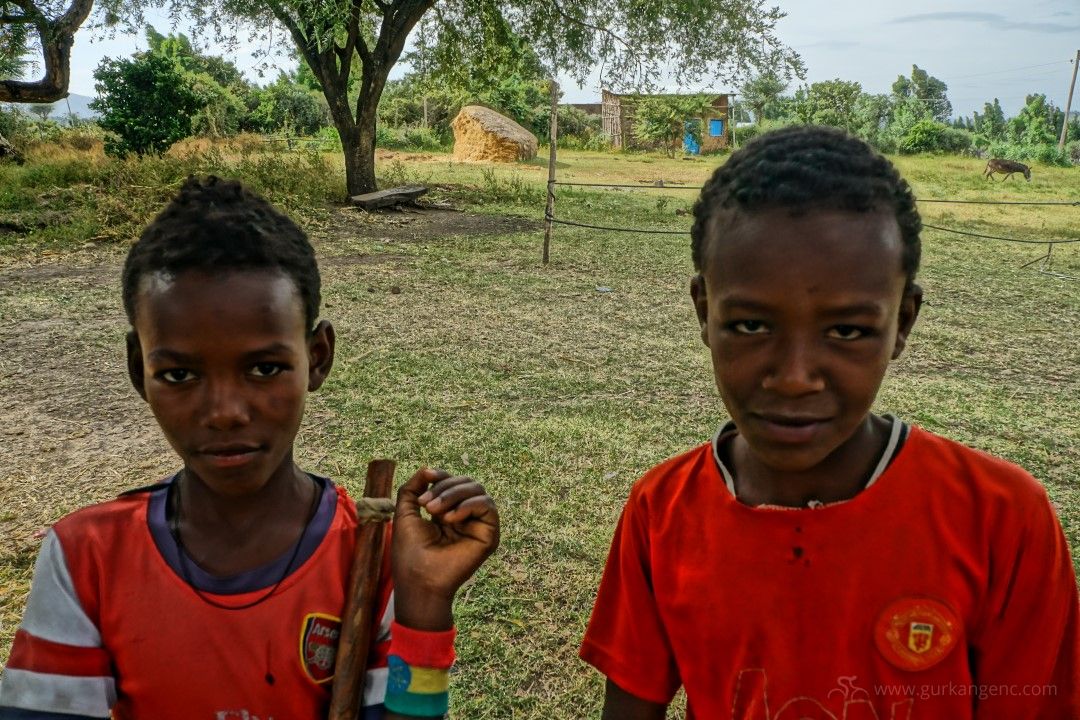
When they see me riding at constant speed they start to run and recognizing that I keep my speed they start to throw stones. Fortunately, they almost never hit. Anyway, if the number of kids is high I increase my speed so that they won’t even find the opportunity to run.
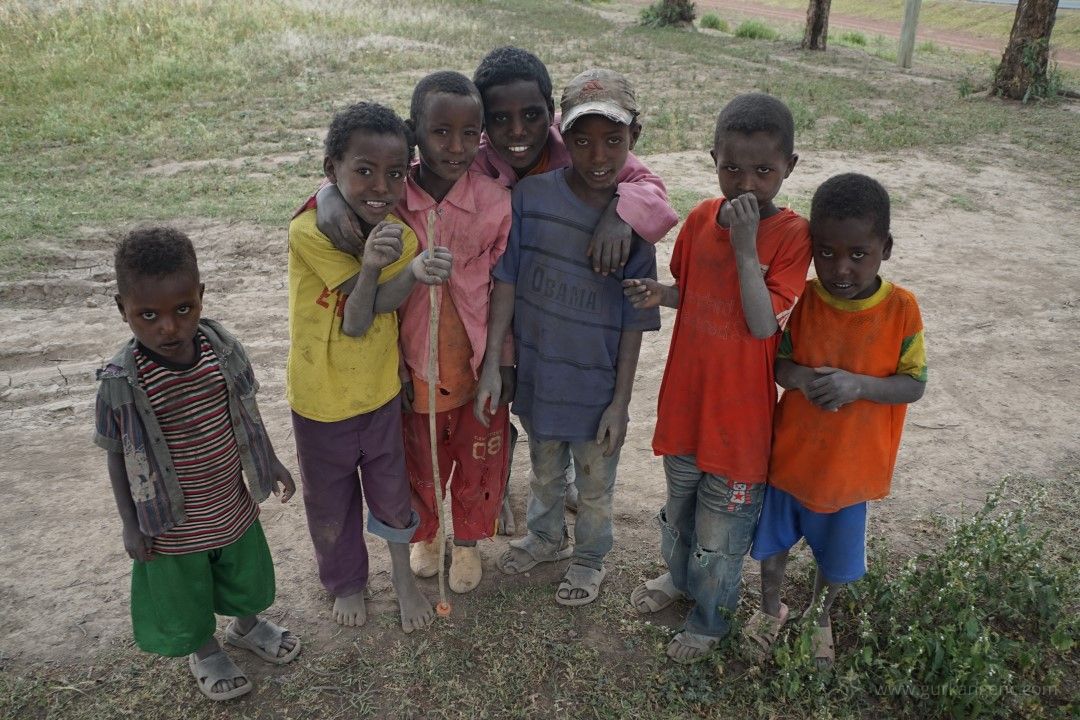
I usually choose small quiet places outside settlements but all of a sudden kids burst onto the scene. As if they were hiding among the bushes and waiting for me to arrive. While preparing a meal I have to share with them. Otherwise I can’t eat anything. I share the limited food I have with them. Even after this some kids threw stones at me. I start to understand this stone throwing issue better moving inside Ethiopia. This is a sort of a game for these people. They start to throw stones to each other from a child, the mother throws slippers, the father sticks their kids. They throw stones at animals on the streets or at animals leaving the herd. It becomes dangerous when they throw stones outside my sight. For example, they throw stones from top when I pass a hill. If one of them hits me I might get badly injured. Although I warned them a couple of times they didn’t give up. Peter while traveling in the north caught one of the stone throwing kids and beat him up. I saw the stone they threw at him it must have been really hurt him. Pier and Janic also got in a similar situation. During my Ethiopia travel I was thrown stones at every single corner. Especially, this increases in rural areas outside main roads. In one of the restaurants I paid for my meal and waited for the change. The waiter was unwillingly to give the change and asked me: “I need money for my prepaid phone can I have the change?” They are very easy to ask for money for their prepaid phone without deserving.
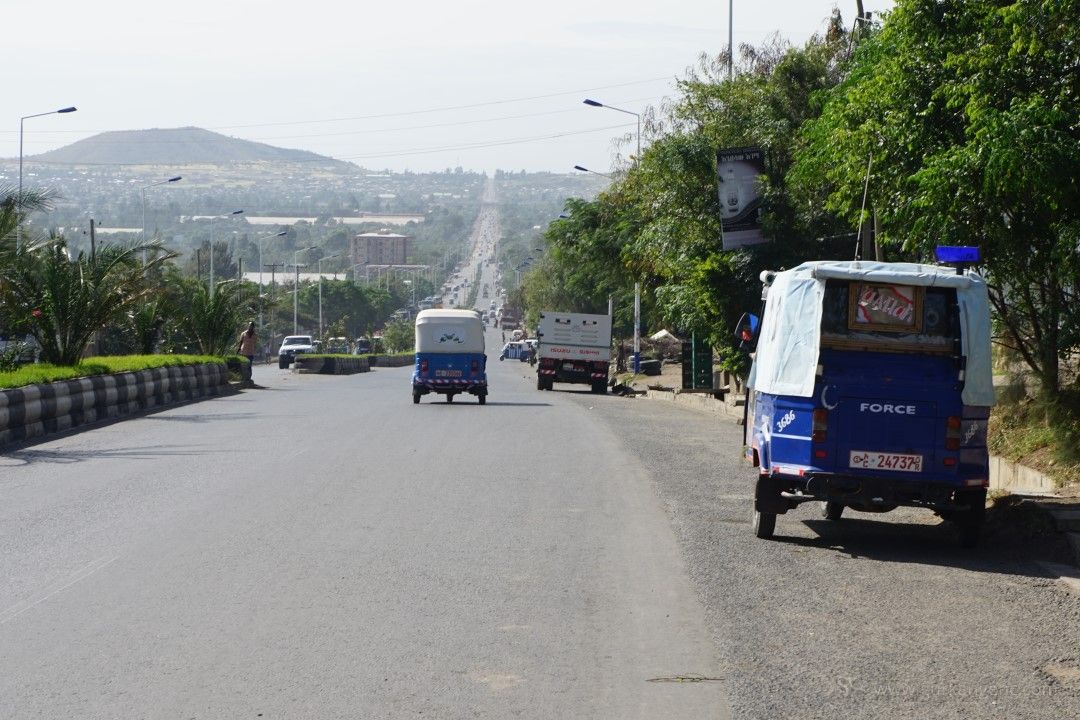
Where ever I went in Ethiopia people asked for money. Some first invited me to their homes and afterwards asked for money. A family allowing me to camp in their backyard asked for money in the morning for accommodation. I really got surprised. When I said no, they didn’t let me go. I had to give 5 USD. The animal inside me came out when they also demanded money for the green beans they offered for dinner. I started to shout and they went away. This time I became bad white man. This happened to me once again when the kids had thrown stones at me down a hill. I climb a slope of 10 % and kids throw stones at me down a hill. How to push the bike and watch out the stones at the same time? I cannot leave my bike and run after the kids. This was one of the most challenging climbs in my life.
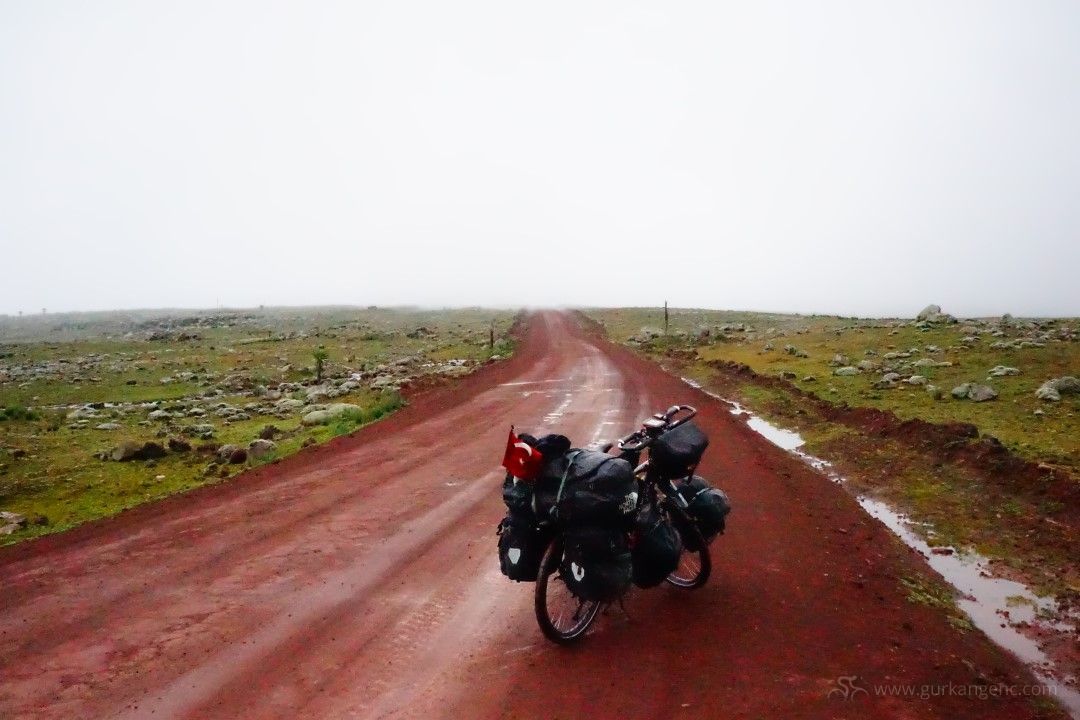
Talking about climbs, the highest paved and dirt road crosses of Africa are in Ethiopia. One of them is the Bale mountain pass and the other Tulu Dimtu at 4112 m altitude both situated in Bale Mountain. People driving to Tulu Dimtu have to take a guide. Also an entrance ticket is needed to enter this national park. I learned this after a climb of 20 km at the security gate. Just at that time it started to rain heavily and officers invited me inside the shelter. Though they spoke only broken English we had a nice conversation. They allowed me to put up my tent next to the security station and didn’t ask for a fee.
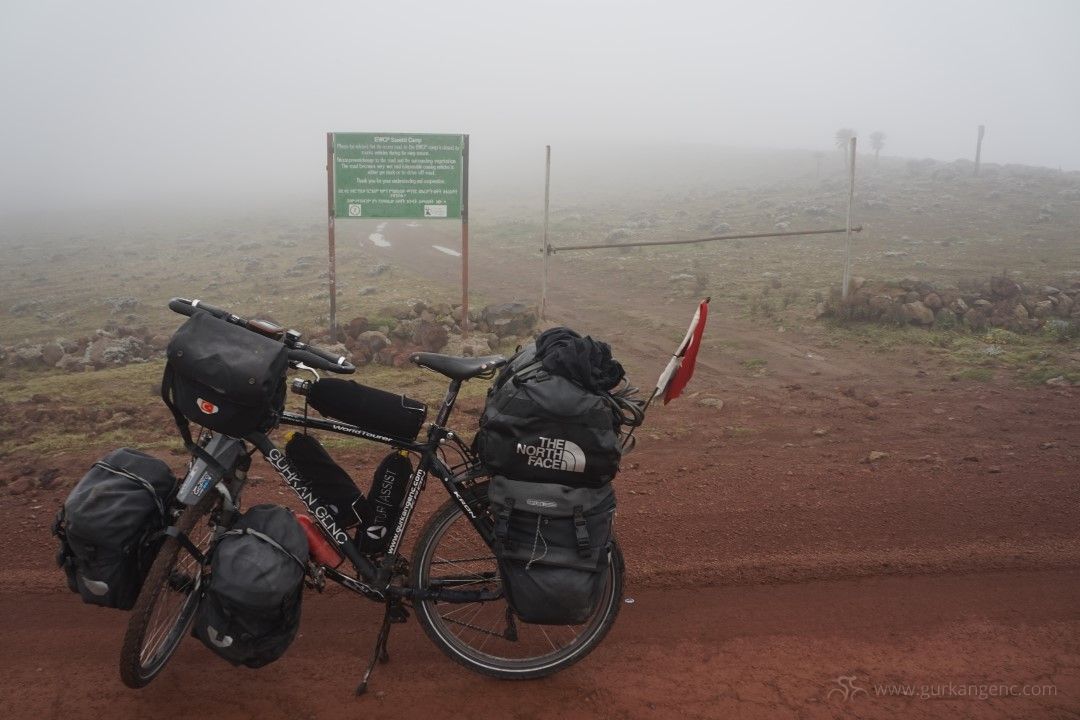
The ramps at the Bale Mountain were really very steep many of them of 18% incline. It was hard to climb those ramps on dirt road on bike. Tomi one of the motorcyclists I met in Kenya also had passed through this route on my suggestion. He sent me a message after he arrived in Addis Ababa: “If the security guards didn’t remember you and didn’t confirm that you came up on bike all the way we wouldn’t believe you.” Well, even I got astonished how I could make such a route after I had accomplished. Although challenging I enjoy such routes.
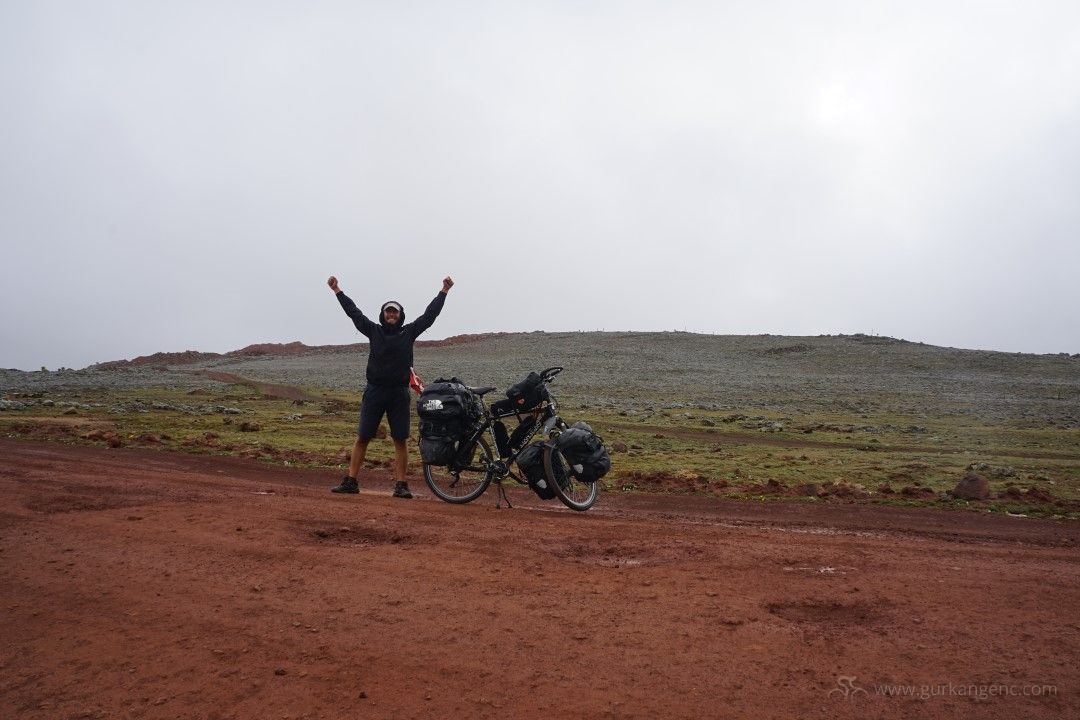
I had recorded a video arriving on top. I’m not the one who easily can express his feelings but it’s more than good to shout “I made it”
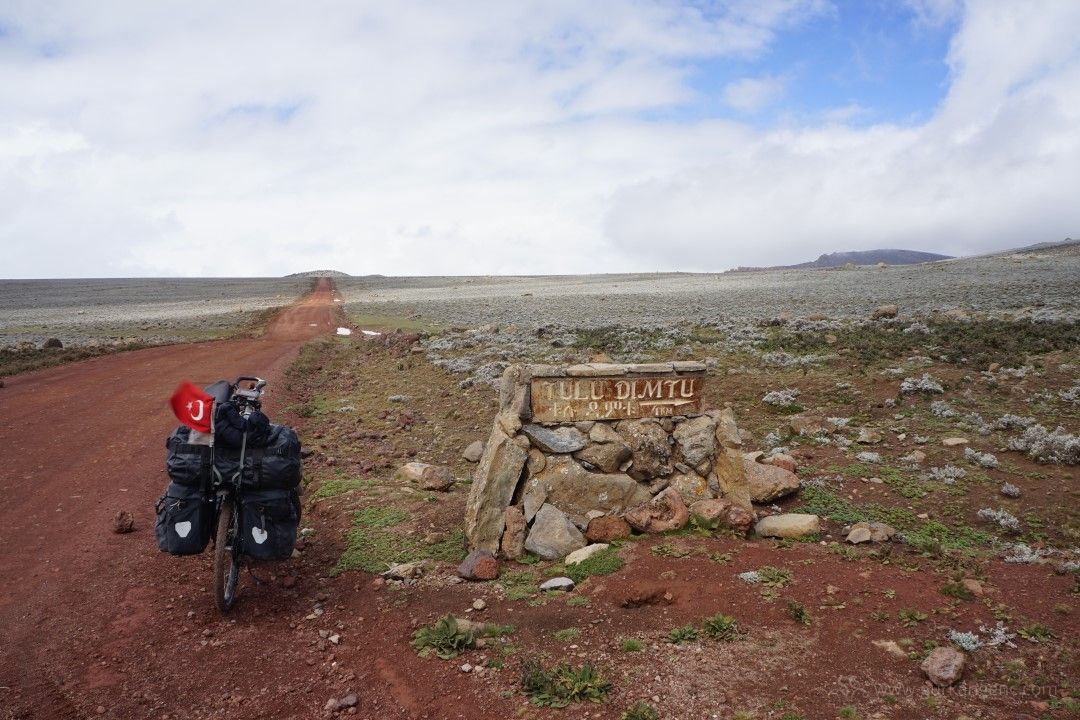
There has been a rare fox in this mountain. Dude, while I was thinking how the hell I can see such a rear species I came up to the fox. I could manage to take his photo although from a distance. I even ran towards the fox to shoot better photos. I again forgot I was at 4000 m altitude. I say again because I did this also in Tadzhikistan. My heart came almost out of my mouth. I became breathless but couldn’t catch the fox. Anyway, I photographed him. And saw one.
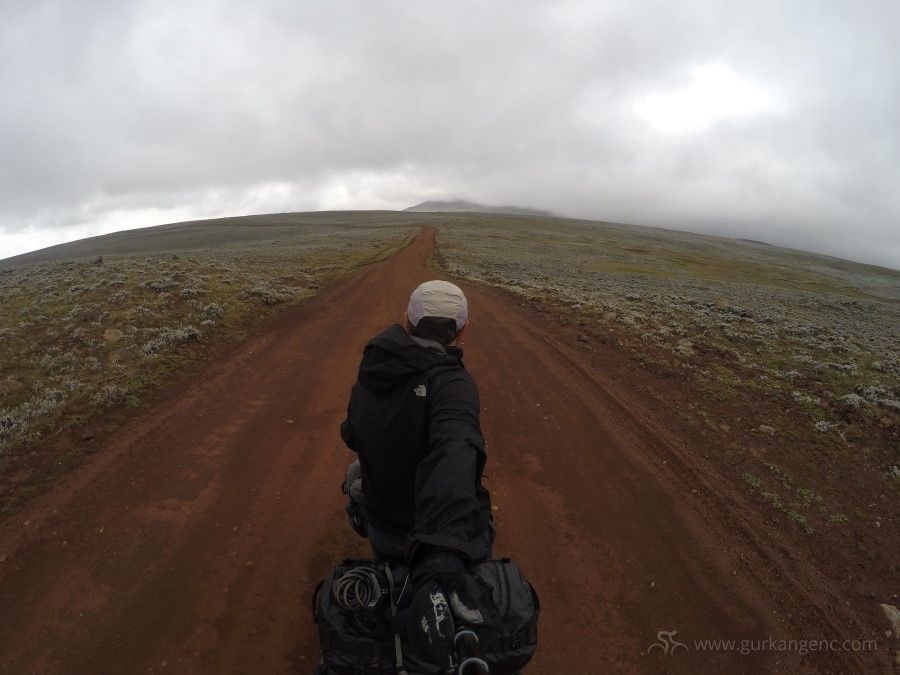
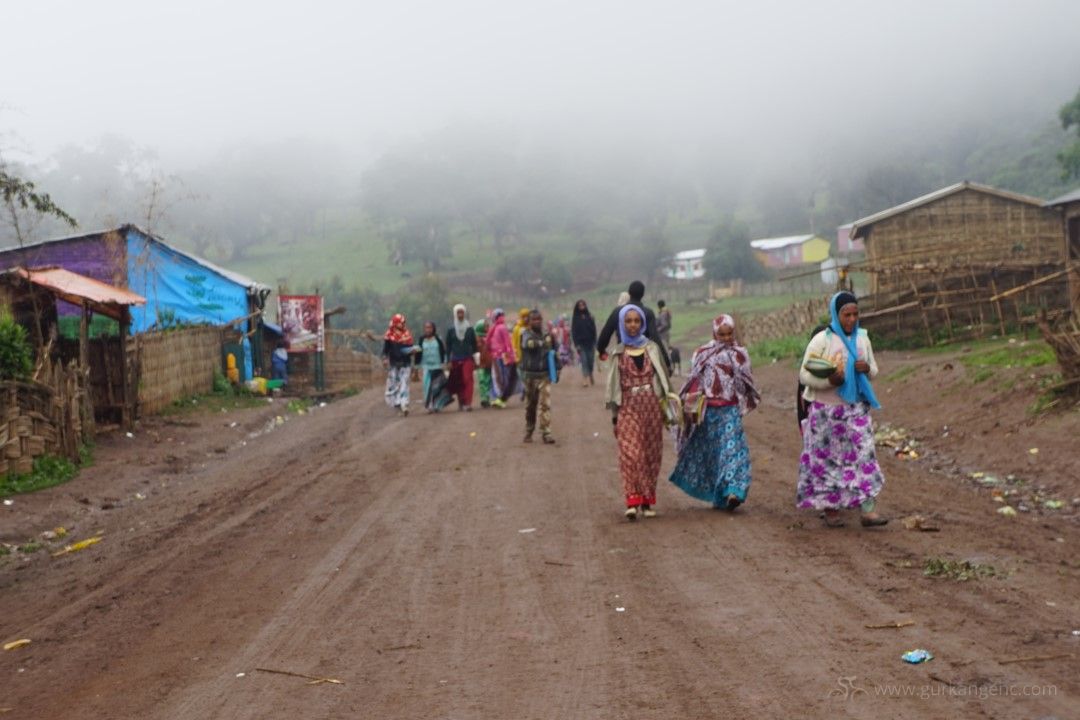
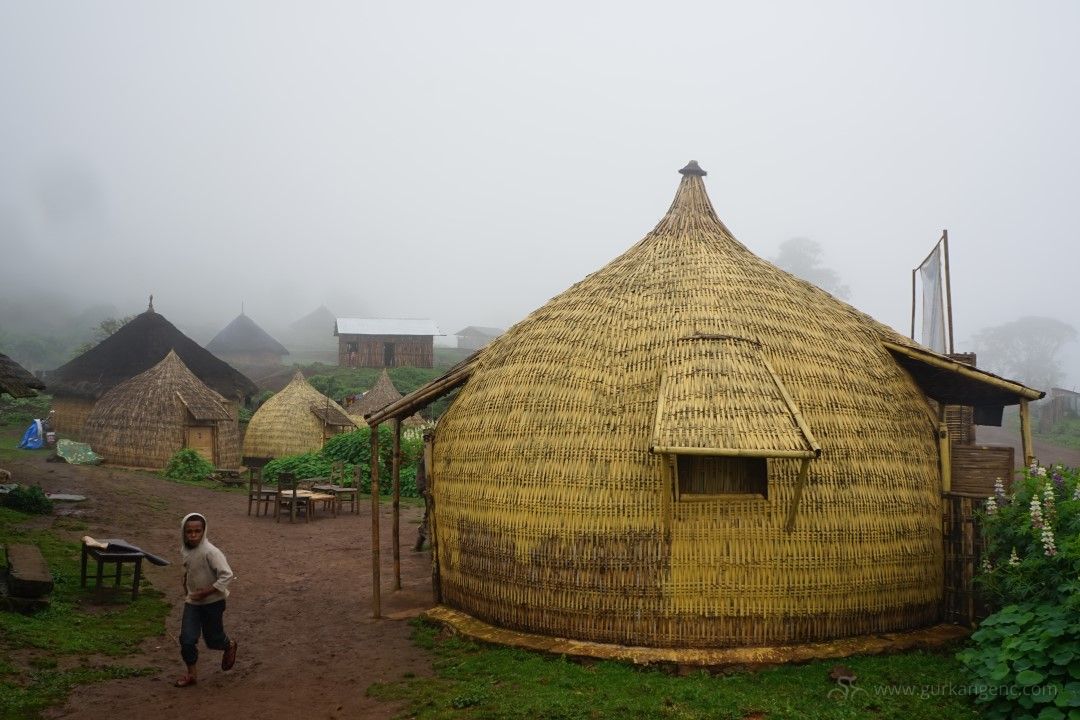
The descending from the top of the mountain pass was amazing. There is a village at 2800 m altitude, Rira. It was noon and the villagers made me stop.
– Welcome to our village.
– Thank you.
– Don’t go on by bike after this point. Lions have lain down on the road.
– Lion? In Ethiopia?
– Yes. And they have lain down on the road or are around the road right now.
– Hmmm. Thank you but after lunch I’ll continue.
I didn’t believe them. I thought they wanted me to take care and then ask for fee. Let me tell why I didn’t believe them. I asked to the authorities in Addis Ababa many times whether there are lions on my route or not and they assured me that there weren’t. Anyway, first have a lunch.
While eating a UN car came over. I asked them and they confirmed that lions where on the road. My jaw dropped. Dude, I was comfortably traveling in this region on bike, f..k. How come? Then, let’s wait all the day and then continue. By the way I got informed why the lions came to the road. After rain the driest places were the roads. There wouldn’t be a problem if I came upon lions during day or in the evening. They weren’t hunting during light time. But there is no guarantee. Anyway, I always found the borders of the national parks very strange. Dude, do those animals, the elephants, the lions, the rhinos always live within the borders of the national parks? Won’t they just cross the park border?
The next days I continued to cycle on rough Ethiopian terrain. I also passed through the region where the Somalis where living. At a control post in that region I said: “You know that I’m a Turk and a Muslim but still you want money from me!” Complaining like this they allowed me to pass. Dude, our government sends aid to people look how the Somalis are responding. Anyway I passed that control gate. In the mean time the kids were continuing to throw stones at me though I came down to the south.
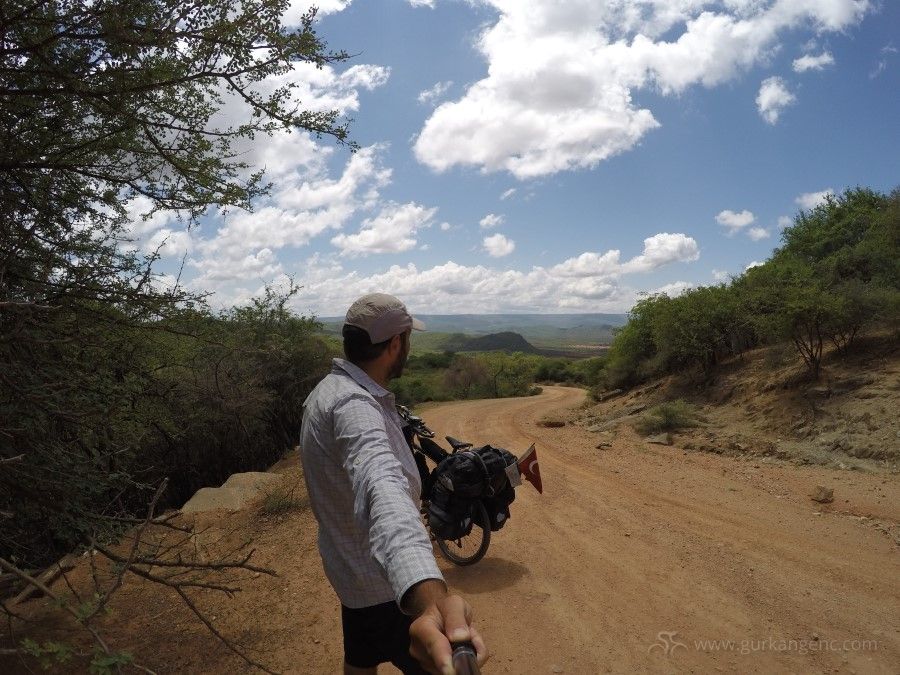 ,
,
The distance and high altitude climbs for days made my legs suffer. Since a long time I haven’t had leg aches while sleeping. But this terrain exhausted me. One night the cramp in my leg lasted till morning and the next day my legs were still aching. The reason for leg cramps are because I don’t get the necessary nutrition, fatigue and pushing to limits. After that day I started to apply relaxants to my legs whenever I stopped.
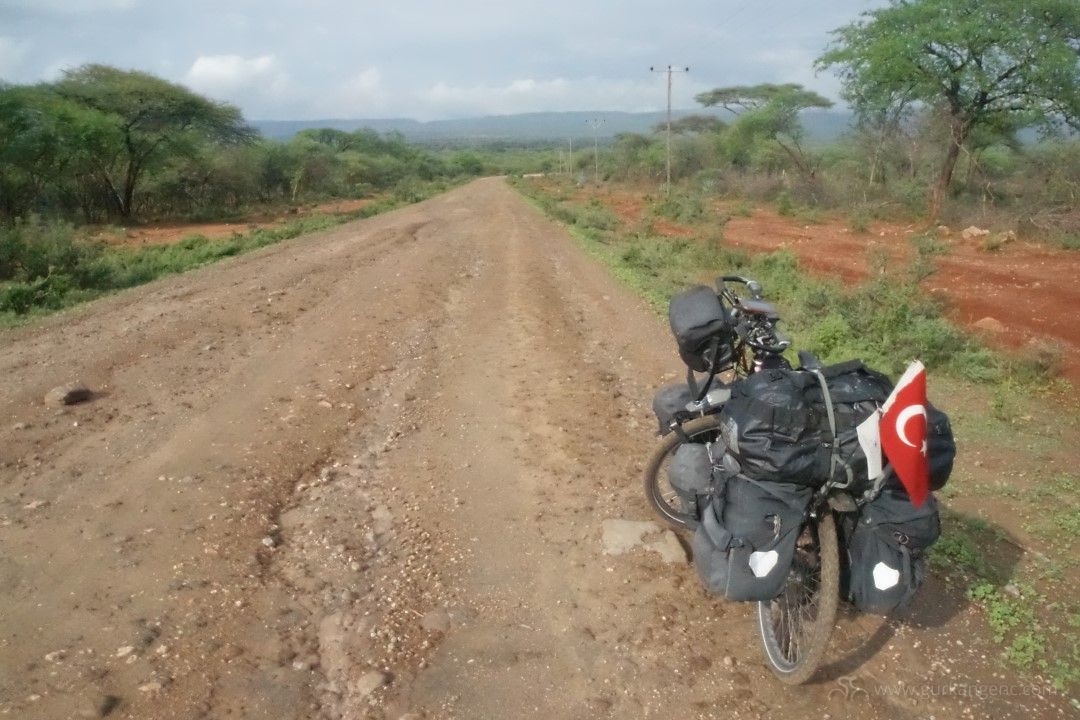
The first time in my life I wrote on my note book in Ethiopia: “Dude, what the hell I’m doing here? What a bloody road is that?” My father sent me a message after a long time following my route from the tracking system: “Where the hell are you riding?” This route was not on Google maps but I could see on the GPS. I rode through a terrain for 400 km, 750 km without any settlements. On the south I got lost in dense forests. A rough terrain with lots of surprises.
I really got relieved when I arrived in the Kenya border town Moyale.